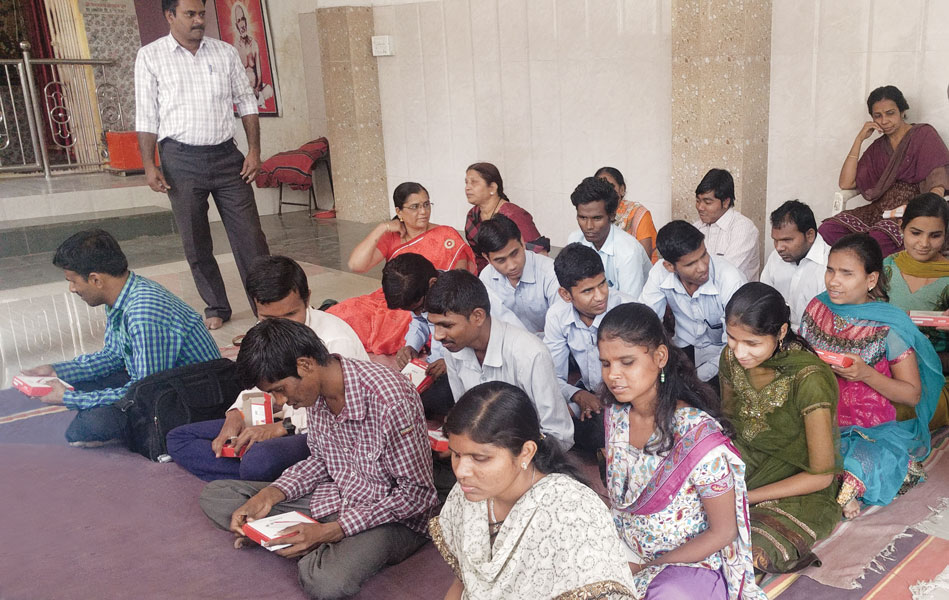Vinod Deshmukh (55) began his career as an R&D engineer at Wipro, Bangalore, in 1982 and was instrumental in setting up Wipro’s design centre in the Silicon Valley. Introducing his partner S N Padmanabhan (53) at Innovation Hub Technologies, he says, “We studied at IIT Kanpur, worked together at Wipro and Mindtree and it’s a total coincidence that we decided to do something for the society at the same time. Perhaps we share the same zeal.” Both set out to apply technology to fulfil the need of independent mobility for the visually impaired. And in 2013 they invented India’s first handheld mobility aid for the visually impaired. “It’s more like bridging the gap between the cane and an obstacle,” he explains.

The beginning
Deshmukh recalls how each time they met someone to get some assistance on their research they would first meet their doubtful eyes. “Their thoughts would be so loud that you could read it on their face,” he quips. When they began visiting blind schools to get the inputs and feedback for their machine “nobody would look excited or happy. We were told that many come there saying they want to help and stop turning up after a while,” says Padmanabhan. They chose to explain with their actions and “kept trying persistently. Sometimes we blindfolded each other to check how the machine worked,” he adds.
The Torch
After a year, they introduced Ausion, a wearable assistive technology for the visually challenged. Deshmukh explains that it is based on the principle of echolocation and can detect an object and translate it into sound. The user can hold it in the hand or wear it on the wrist. It operates with a single button and head phones emit musical notes when it detects an obstacle within three metres range. Like a torch that lights the way in the dark Ausion uses the audible feedbacks to alert the the visually impaired.
“The best part — it’s a 100 percent made-in-India product,” he adds. One of the users from National Association of the Blind, Bengaluru, says, the machine can detect overhanging obstacles at the chest, shoulder and head level allowing greater freedom of movement.
“It’s more like bridging the gap between the cane and an obstacle.”
The Rotary Connection
RC Bangalore North, D 3190, has been working with the visually impaired for seven years now and has completed 13,000 surgeries to rectify avoidable blindness. The club had been looking for a good project to celebrate its golden jubilee year 2015–2016 and chose to do a little extra for the visually impaired. Club President Prakash Gawankar called on his old friend Vinod Deshmukh and at the end of their meeting “we had recalled all our old memories and sealed the deal for Ausion as our golden jubilee project,” says Gawankar. So far the club has distributed 400 machines to visually impaired students and teachers.

For the two techies, “Rotary is a trusted social organisation and reaches every part of the world, so who wouldn’t want to work with them!” Quiz them on which part of their life was more exciting — IT industry or their Innovation Hub? Both find the latter more satisfying. Deshmukh says “this has given us a chance to change the lives of many people.”





